Inclusive Design Patterns (PDF)
4.5
بر اساس نظر کاربران

شما میتونید سوالاتتون در باره کتاب رو از هوش مصنوعیش بعد از ورود بپرسید
هر دانلود یا پرسش از هوش مصنوعی 2 امتیاز لازم دارد، برای بدست آوردن امتیاز رایگان، به صفحه ی راهنمای امتیازات سر بزنید و یک سری کار ارزشمند انجام بدینکتاب های مرتبط:
مقدمه کتاب "Inclusive Design Patterns"
کتاب "Inclusive Design Patterns" نوشته هیدن پیکرینگ یکی از منابع منحصربهفرد و ارزشمند در زمینه طراحی وب میباشد که هدف اصلی آن آموزش طراحی وبسایتهایی است که برای همه افراد، بدون توجه به تواناییها یا محدودیتهایشان، مناسب باشند. این کتاب تلاش دارد تا به طراحان و توسعهدهندگان وب آموزش دهد که چگونه با رعایت اصول دسترسپذیری (Accessibility) و با استفاده از الگوهای طراحی صحیح، تجربه کاربری بیبدیلی خلق کنند.
در دنیای امروز که اینترنت یکی از اصلیترین ابزارهای تعامل و دسترسی مردم به اطلاعات و خدمات است، طراحی یک محصول که همه افراد بتوانند به آسانی از آن استفاده کنند، دیگر یک انتخاب نیست بلکه یک وظیفه و مسئولیت اخلاقی است. هیدن پیکرینگ در این کتاب نهتنها بر ضرورت توجه به طراحی فراگیر تأکید دارد، بلکه راهکارهای کاربردی و گامبهگام برای پیادهسازی این اصول در پروژههای واقعی را ارائه میدهد.
خلاصهای از کتاب
با مطالعه این کتاب، خواننده با مجموعهای از الگوهای طراحی آشنا میشود که برای طیف گستردهای از کاربران با نیازهای متنوع طراحی شدهاند. پیکرینگ در این کتاب از موضوعاتی مانند فرمها، نویگیشن، رسانهها، و تعاملات پیچیده صحبت میکند و با مثالهای عملی نشان میدهد چگونه میتوان آنها را با اصول دسترسپذیری ادغام کرد. این کتاب نه تنها بر جنبههای تکنیکی تمرکز دارد بلکه به نکات اولیه طراحی انسانی نیز اشاره دارد. هر فصل از کتاب به یک مشکل خاص میپردازد، سپس راهحلهایی ارائه میدهد که میتوان به سادگی در پروژهها اجرا کرد.
چرا این کتاب اهمیت دارد؟
یکی از دلایل اصلی اهمیت این کتاب، تأکید بر طراحی برای همه افراد، از جمله کسانی است که ممکن است به دلیل ناتوانیهای جسمی یا ذهنی در استفاده از اینترنت با محدودیتهایی روبهرو باشند. آمارها نشان میدهند که درصد قابلتوجهی از جمعیت جهان با مشکلات مختلفی نظیر نابینایی، کمبینایی، ناشنوایی یا محدودیت حرکتی روبهرو هستند. این کتاب با ارائه مثالهای عملی نشان میدهد که چگونه میتوان به جای حذف این افراد، آنها را در طراحیهای خود مشارکت داد.
نکات کلیدی و دستاوردها
- اصول طراحی فراگیر که به شما کمک میکند سایتهای دسترسپذیرتر بسازید.
- چگونگی استفاده از Progressive Enhancement برای بهبود تجربه کاربری.
- راهنمای طراحی فرمهای پیچیده و تعاملات کاربران به طور دسترسپذیر.
- انتخاب مناسب کدنویسی HTML, CSS و JavaScript در راستای اصول دسترسپذیری.
- بررسی اشتباهات رایج در طراحی و ارائه روشهای جلوگیری از آنها.
نقلقولهایی معروف از کتاب
"Designing inclusively is not about building one-size-fits-all solutions. It's about recognizing diversity."
“Accessibility is not a feature, it’s a foundation.”
نتیجهگیری
طراحی فراگیر در دنیای امروز نه تنها یک مهارت فنی است، بلکه یک ضرورت اخلاقی نیز میباشد. کتاب "Inclusive Design Patterns" به طراحان و توسعهدهندگان نشان میدهد که چگونه میتوانند با استفاده از ابزارها و تکنیکهای موجود، طراحیهایی بسازند که واقعاً به معنای کلمه "فراگیر" باشند. این کتاب یک منبع ارزشمند و راهنمای جامع برای کسانی است که میخواهند نه تنها محصولات بهتری خلق کنند، بلکه دنیایی بهتر برای همه کاربران به وجود آورند.
Introduction to 'Inclusive Design Patterns'
Creating truly accessible and inclusive digital experiences is no longer optional—it's a necessity. In 'Inclusive Design Patterns,' Heydon Pickering offers actionable insights into designing for all users, irrespective of their abilities or circumstances. This book is not just a guide; it's a mindset-shifting resource that highlights why accessibility is the cornerstone of user experience and shows you exactly how to achieve it in practical terms.
Inclusive design isn't merely about checking off compliance boxes; it's about making the web a better place for everyone. With real-world examples, case studies, and an empathetic approach, 'Inclusive Design Patterns' equips designers and developers with the tools they need to create experiences that prioritize inclusivity over aesthetics. But it goes deeper than just design―it's about embedding accessibility into the DNA of how a product or service functions.
Detailed Summary of the Book
'Inclusive Design Patterns' tackles the critical challenges faced by designers and developers in creating truly accessible web interfaces. The book begins by reframing the concept of accessibility, steering away from outdated perspectives that paint it as a niche concern. Instead, it emphasizes how inclusivity benefits everyone. Each chapter then unfolds with thoughtful discussion paired with actionable techniques for building a web that's accessible by default.
The book delves into various user interface (UI) design patterns, exploring both common accessibility pitfalls and effective solutions. From designing better forms and handling focus management to creating accessible widgets such as carousels, modals, and menus, each pattern demonstrates how user diversity—including those with disabilities—can and should be accommodated. With HTML, CSS, and JavaScript examples, the book ensures that readers bridge the gap between theory and implementation.
The central philosophy of the book is simple yet profound: treat accessibility as a design constraint, not an afterthought. By embracing this approach, you solve real problems in meaningful ways while contributing to a more equitable digital landscape.
Key Takeaways
- Accessibility is for everyone, not just for users with disabilities. By optimizing for inclusivity, you often enhance the experience for all users.
- Focus management is critical for usability, particularly for users who rely on assistive technologies like screen readers.
- Proper semantics in HTML and ARIA (Accessible Rich Internet Applications) roles ensure a meaningful, navigable experience for all.
- Creating accessible widgets like accordions, carousels, and modal dialogues requires careful consideration of state, roles, and user expectations.
- Inclusive design is less about rigid techniques and more about adopting a mindset that prioritizes user needs.
Famous Quotes from the Book
"Inclusive design is a process, not a checklist."
"Accessibility isn’t about special accommodations; it’s about designing experiences that can be enjoyed by anyone."
"When we design for the extremes, we often find solutions that benefit everyone."
Why This Book Matters
In a world driven by digital transformation, accessibility is often relegated to an afterthought. 'Inclusive Design Patterns' matters because it challenges this narrative. It serves as a wake-up call to designers, developers, and stakeholders to prioritize inclusion as a fundamental component of user experience. By focusing on adaptability and empathy, the book bridges the gap between accessibility and innovation, demonstrating how inclusivity can drive better design outcomes for all users.
The book's technical depth, paired with its conversational tone, makes it an ideal resource for both beginners and seasoned professionals. Furthermore, with regulations and legal requirements around accessibility becoming stricter, understanding concepts like focus management, semantic markup, and ARIA roles is no longer optional. 'Inclusive Design Patterns' equips readers with the skills they need to not only comply with accessibility standards but to exceed them, creating web experiences that are genuinely user-centered.
Ultimately, this book matters because it advocates for dignity, equality, and fairness. By incorporating its lessons into your work, you’ll not only improve your skills but also contribute to a more inclusive and empathetic digital world.
دانلود رایگان مستقیم
شما میتونید سوالاتتون در باره کتاب رو از هوش مصنوعیش بعد از ورود بپرسید
دسترسی به کتابها از طریق پلتفرمهای قانونی و کتابخانههای عمومی نه تنها از حقوق نویسندگان و ناشران حمایت میکند، بلکه به پایداری فرهنگ کتابخوانی نیز کمک میرساند. پیش از دانلود، لحظهای به بررسی این گزینهها فکر کنید.
این کتاب رو در پلتفرم های دیگه ببینید
WorldCat به شما کمک میکنه تا کتاب ها رو در کتابخانه های سراسر دنیا پیدا کنید
امتیازها، نظرات تخصصی و صحبت ها درباره کتاب را در Goodreads ببینید
کتابهای کمیاب یا دست دوم را در AbeBooks پیدا کنید و بخرید
1312
بازدید4.5
امتیاز0
نظر98%
رضایتنظرات:
4.5
بر اساس 0 نظر کاربران
Questions & Answers
Ask questions about this book or help others by answering
No questions yet. Be the first to ask!
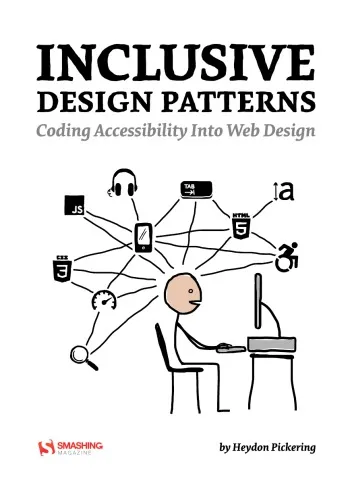

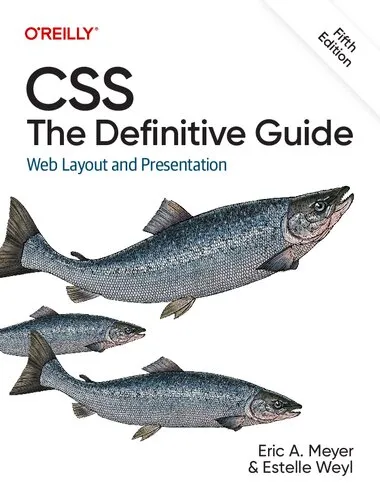
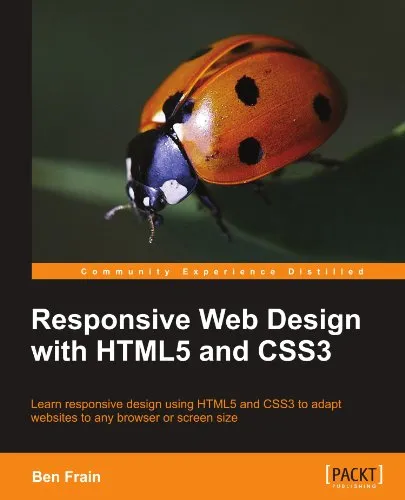

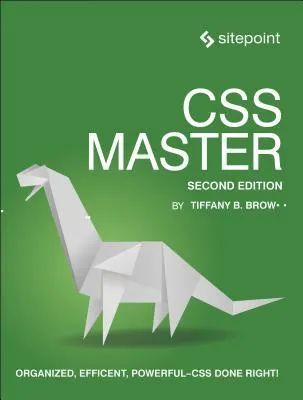


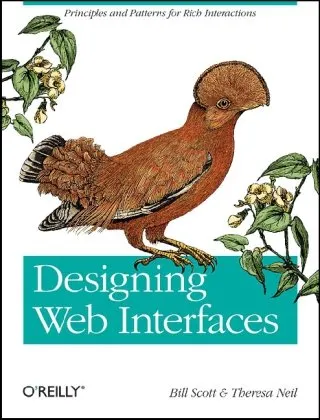
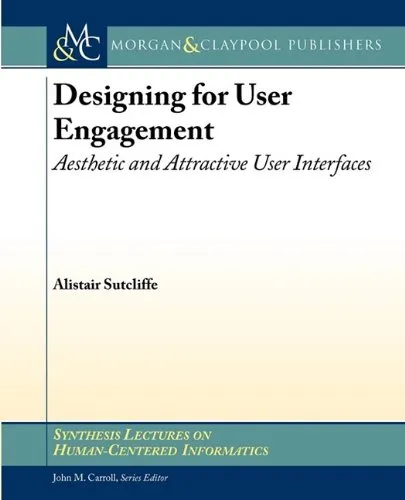
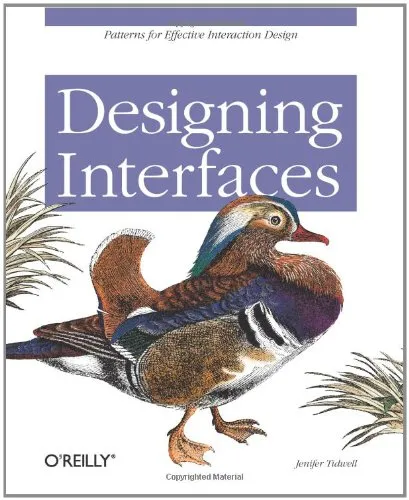
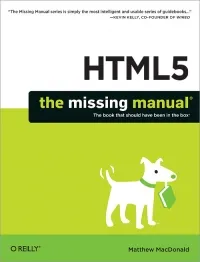

![REST API design rulebook [designing consistent RESTful web service interfaces]](https://s3.refhub.ir/images/thumb/REST_API_design_rulebook__designing_consisten_8788.webp)

